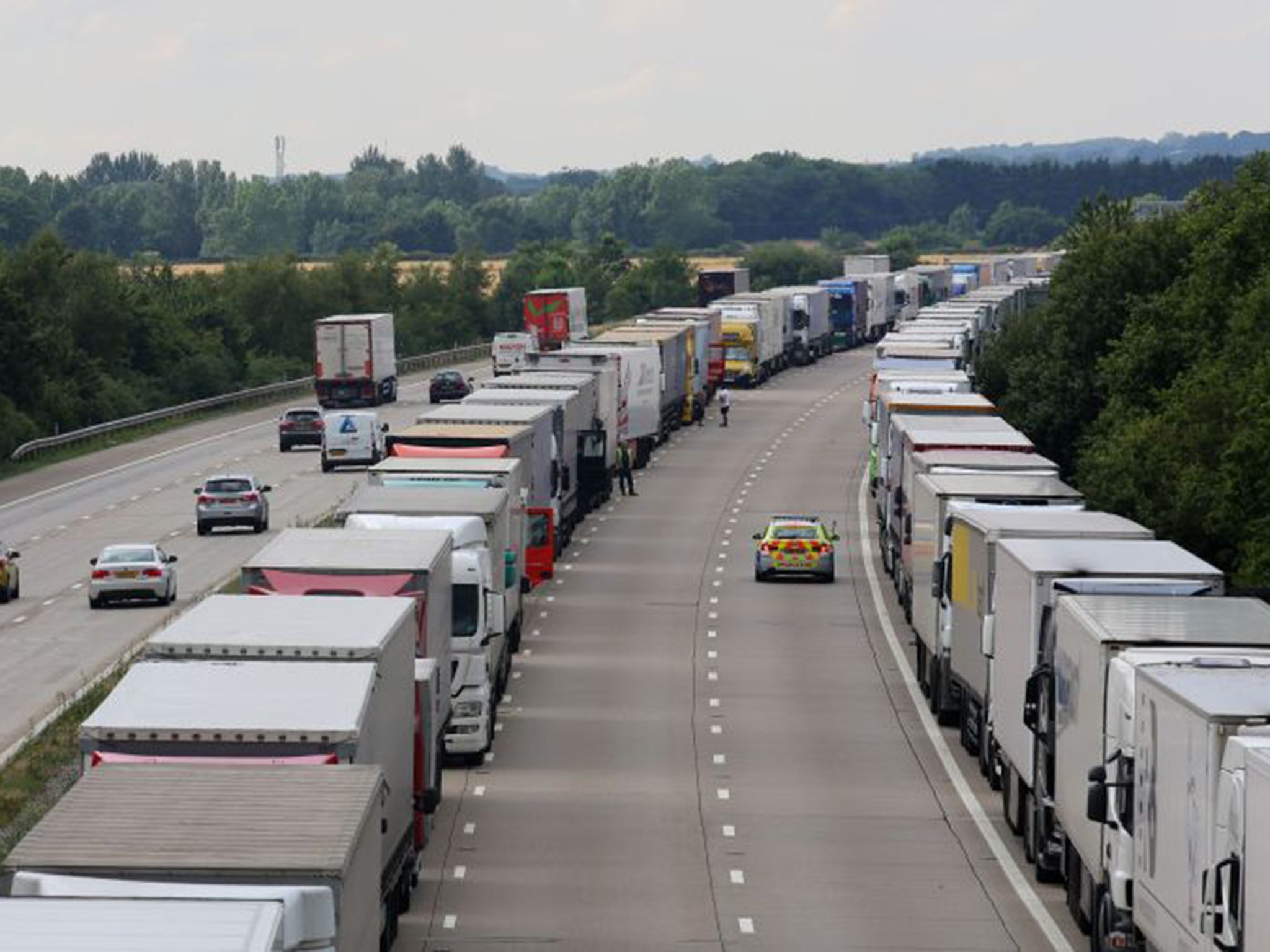Brexit: UK will face ‘significant disruption’ on 1 January even if trade deal is signed, National Audit Office warns
Watchdog says government has started its preparations too late

Your support helps us to tell the story
From reproductive rights to climate change to Big Tech, The Independent is on the ground when the story is developing. Whether it's investigating the financials of Elon Musk's pro-Trump PAC or producing our latest documentary, 'The A Word', which shines a light on the American women fighting for reproductive rights, we know how important it is to parse out the facts from the messaging.
At such a critical moment in US history, we need reporters on the ground. Your donation allows us to keep sending journalists to speak to both sides of the story.
The Independent is trusted by Americans across the entire political spectrum. And unlike many other quality news outlets, we choose not to lock Americans out of our reporting and analysis with paywalls. We believe quality journalism should be available to everyone, paid for by those who can afford it.
Your support makes all the difference.Britain is set to face “significant disruption” when the Brexit transition period ends, whether or not a trade deal is agreed, Whitehall’s spending watchdog has warned.
With less than two months to go until the UK leaves the EU’s single market and customs union, the National Audit Office (NAO) says border preparations are not ready and have been further slowed down by the coronavirus pandemic.
Though the NAO had already rated the preparations as “high risk” for not being ready, in a new report released on Friday the organisation says the government has still not done everything it needs to do.
Among unresolved issues, the watchdog says the government has not ensured there are enough customs agents, and that civil contingency plans to maintain the supply of medicines and other critical goods are behind schedule thanks to the Covid-19 pandemic.
The NAO's striking analysis also says new checks on goods moving from Great Britain to Northern Ireland, imposed under Boris Johnson's Brexit deal, could cause extra problems, despite assurances by the prime minister during the election campaign
The watchdog said the government had left it too late to set up its “trader support service” that is meant to help businesses navigate the extra bureaucracy that Brexit is set to impose.
Labour MP Meg Hillier, who chairs the Public Accounts Committee, said the government “simply hasn’t given businesses enough time to prepare”, adding: “It’s incredibly worrying that, with two months to go, critical computer systems haven’t been properly tested. The government can only hope that everything comes together on the day but this is not certain.”
The UK left the EU at the end of January this year but remained in a transition period during which rules and regulations remained tied to Brussels. But on 31 December, the state of affairs will change again – and the UK will leave the bloc’s customs union and single market.
The government says it wants to negotiate a free trade agreement (FTA) to eliminate tariffs and quotas on goods traded with the EU, but this limited arrangement will still cause a vast economic rupture with the EU at the start of next year.
Even if the UK can negotiate an FTA – far from certain – checks on goods will still be required: leading to long queues at ports and disruption to just-in-time supply chains.
The NAO’s report says that according to the government’s latest “reasonable worst-case planning assumptions”, between 40 per cent and 70 per cent of lorries moving between the EU and UK may not be ready for new border controls on 1 January.
Queues of up to 7,000 lorries are expected at the main Channel crossings, despite moves by the government to introduce a “Kent access permit” for freight crossing the Channel, in an attempt to regulate the movement of the vehicles.
Gareth Davies, the head of the NAO, said: “The 1 January deadline is unlike any previous EU exit deadline – significant changes at the border will take place and government must be ready.
“Disruption is likely and government will need to respond quickly to minimise the impact, a situation made all the more challenging by the Covid-19 pandemic.”

Join our commenting forum
Join thought-provoking conversations, follow other Independent readers and see their replies
Comments